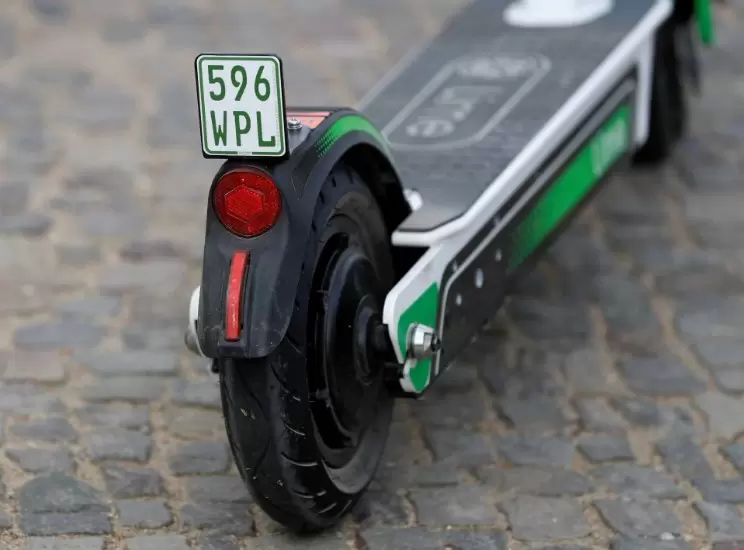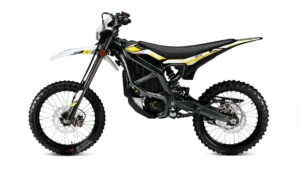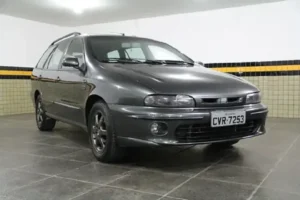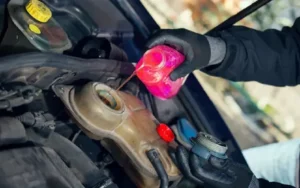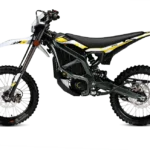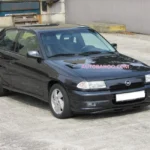Do You Need a License for an Electric Scooter in the United States?
Electric powered scooters have had an explosive boom as a transportation technique across America in recent years.
Their smaller size than motorcycles allows easy navigation of crowded streets and makes parking a breeze compared to cars or motorcycles.
As more companies roll out shared electric powered scooter packages and people buy their own scooters, questions stand up across the felony policies for operating them.
Licensing policies vary among states and cities, so information from both country and local legal guidelines is important for any e-scooter rider.
In this comprehensive guide, we explore the varying electric scooter license requirements state-by-state and provide best safety practices for all riders to follow regardless of jurisdiction.
Electric Scooter License Laws by State:
At the same time as some states take an at ease stance on electric powered scooter licensing akin to bicycles, others have more stringent guidelines classifying e-scooters in addition to motor motors. Let’s examine the approaches of several states:
Florida treats e-scooters as motor vehicles, so a regular driver’s license is mandatory to ride one legally on public roads.
Without a license, private electric scooters may only be ridden on designated bike paths and sidewalks in Florida after disabling the motor function.
This presents challenges in many urban areas lacking direct scooter-accessible paths.
However, not all southern states match Florida’s restrictive policy. Texas also categorizes e-scooters as motor vehicles necessitating a driver’s license to ride in bike lanes and on streets.
But neighboring Louisiana has no statewide electric scooter driver’s license requirement, allowing residents 15 and older to ride as they would a bicycle following basic traffic laws.
Out west, both California and Colorado regulate e-scooters permissively without driver’s licenses needed.
However, major municipalities within these states like Los Angeles and Denver have enacted localized rules such as speed limits, no-ride zones, and permit mandates for shared fleets that supersede state statutes.
In the Midwest, Illinois pioneered dock less electric scooter share programs in cities like Chicago beginning in 2018.
Residents 18 or older face no license obligation, only adherence to general bike rules like road signs and side path usage. By contrast, Ohio imposes motorcycle licensing on all e-scooter riders regardless of context due to its vehicle classification system.
As this initial sampling shows, the United States exhibits mixed approaches to electric scooter licensing that vary significantly at state and local levels.
The remainder of this guide will explore both common licensing components and location-specific statutes in more depth.
Common Elements of Electric Scooter Licensing Programs:
For jurisdictions mandating permits or licenses, several standard elements tend to recur across programs. Most apply minimum age floors ranging from 15 to 18 years old to be eligible.
Safety training covering proper hand signals, road positioning, and scooter operation basics represents a nearly universal prerequisite as well.
Some states facilitate this through in-person classes while others offer online education options for convenience.
Additionally, all licensing programs require completing a written knowledge exam. These tests probe comprehension of relevant vehicle laws such as right of way, speed limits, and sobriety through a multiple choice or true/false format.
Passing scores register applicants in state databases, generating physical licenses or permit cards. Replacement credentials cost a nominal fee of $5-15 if lost or stolen.
The overall application timeline averages 4 weeks from submitting initial paperwork to approval. However, backlogs during peak riding seasons can prolong the wait.
For instance, Massachusetts faced licensing delays exceeding 8 weeks in summer 2022 due to heavy demand from Boston area residents and college students. Proactively starting the process eliminates last-minute rush complications.
Most valid electric scooter licenses or permits remain active for 2-5 years before requiring renewal. This interval aligns with typical driver’s license expiration cycles.
Operators maintain responsibility for staying updated on any law changes potentially affecting scooter operation validity within their jurisdictions over that timeframe as well.
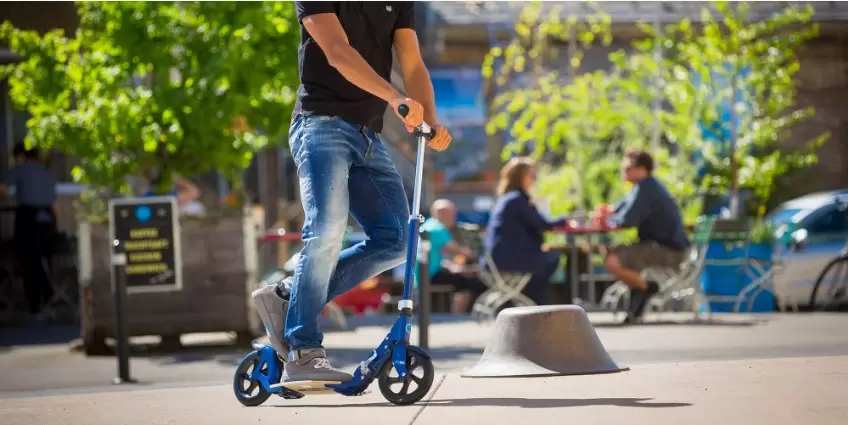
States Permitting “License-Free” Electric Scooter Usage:
A subset of states handle electric scooters permissively without mandated licensing similar to bicycles as non-motorized transport.
Chief among these is California, which established a statewide precedent of no driver’s license necessity in its 2018 Micro-mobility Act.
As long as aged 16 or older, any adult can ride class 1 or 2 electric scooters on public paths and low-traffic streets under 35 mph.
Several other western states adopted California’s relaxed stance. In Arizona, while short-term scooter rentals may require permits, indefinite personal electric scooter use faces no restrictions as long as following basic vehicle codes. Neighboring Nevada equivalently places e-scooters in the non-motorized vehicle category.
Even some unexpected locales allow license-free riding. Alaska exempts stand-on electric scooters from its motorcycle licensing regulations, enabling residents to cruise trails year-round.
And Delaware classifies e-scooters as toys or mobility devices immune to driver’s licensing rules so long as used cautiously on sidewalks or designated park routes only rather than high-speed roads.
Of course, these “license-free” states can still impose local ordinances. For example, Long Beach inside California requires e-scooter share operators obtain permission prior to launching fleets within city limits.
And in Phoenix, electric scooters may not exceed 15 mph on shared paths enforceable through speed governors built into rentals. Thoroughly checking multi-layered state and county laws prevents confrontations with enforcers.
Safety Practices for All Electric Scooter Riders:
While licensing brings structure, the most vital factor remains personal safety awareness whatever one’s location. Best practices include protective measures any e-scooter operator should follow:
- Wearing a helmet. Even at moderate speeds, head injuries remain leading causes of scooter-related emergency room visits. A snugly-fit bicycle or motorcycle helmet can prevent serious harm.
- Following all traffic signage and signals. Electric scooters belong with vehicles on the road, not on sidewalks, requiring active traffic participation.
- Riding sober and distraction-free. Operating any motorized transport under influence faces the same legal penalties as drunk driving that endanger others.
- Using lights after sunset. Highly visible LEDs prevent stealth scooting in dark areas increasing crash risks. Lights legally must meet local nighttime requirements.
- Yielding to pedestrians always. Sidewalk interactions require moving at walking speed or dismounting entirely in cramped areas.
- Considering rideshare insurance. Private plans shield from liability costs should an accident injure others through no fault of one’s own.
- Parking safely out of the way. Leave clearance for pedestrian flow without blocking business entrances when ending trips.
With conscientious riding focused on self-protection and sharing space harmoniously, licensed or unlicensed electric scooter operators alike can participate responsibly in urban transportation micro-mobility.
State regulations alone do not guarantee public safety – that responsibility falls on each individual rider.
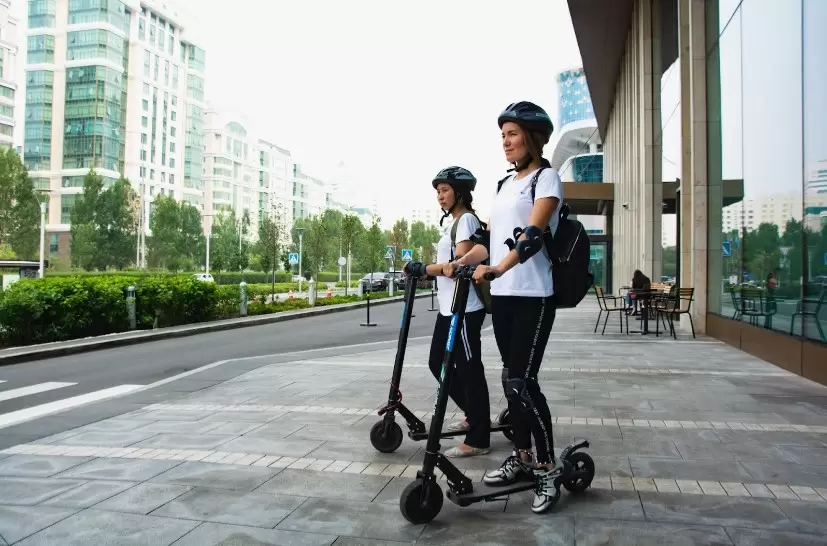
FAQ:
Q: Can a 13 year old ride an electric scooter in the UK?
A: There is currently no legal age restriction.
Q: Do you need a license for an electric scooter in Australia?
A:You don’t need a license to ride e-scooters in most places.
Q: Are electric scooters waterproof?
A: no scooter is entirely waterproof.
Q: How fast is a 250W electric scooter?
A: 15.5 miles per hour.
Q: Are electric scooters good or bad?
A: electric scooters are more environmentally friendly than petrol scooters.
Conclusion:
The patchwork of License for an Electric Scooter statues demonstrates jurisdictions grappling to balance accessibility, innovation, and public welfare.
As adoption rates surge, additional municipal policies will refine frameworks initially addressing docked bikeshare or addressing emerging technologies piecemeal.
For riders navigating the current diverse regulatory landscape, researching multiple governing bodies ensures lawful, prudent rides.
And consistently practicing core safety behaviors keeps all road and path users injury-free regardless of permits or prohibitions.
With shared stewardship, electric scooters offer Americans energy-efficient first- and last-mile connections complementing transit at street level.

With over 9 years of dedicated experience in the automotive industry, I am passionate about all things automotive. My journey began with a deep curiosity for automobiles, which led me to delve deeper into their mechanics, technology and trends. My expertise spans various aspects of the automotive world, from the latest electric vehicles to classic car restoration techniques. Through my articles, I aim to share my knowledge and insights, helping readers stay informed and inspired in the fast-paced world of the automobile.
